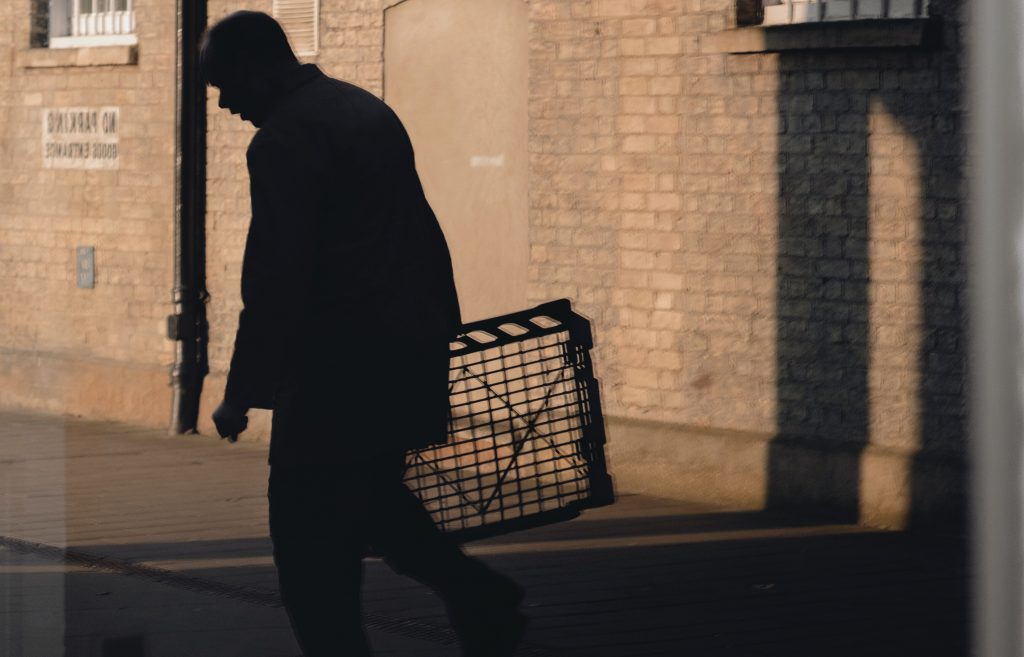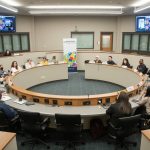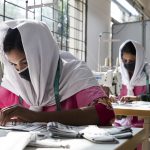Perhaps the biggest obstacle to practicing integral human development is our tendency to forget the meaning of its central term: human. In the twenty-first century, we have removed ourselves from certain basic features of the human experience. We are embodied beings and yet increasingly live our lives on a virtual plane. We are communal, other-oriented beings who historically lived in large family, clan, or tribal groupings characterized by thick social bonds, yet we have slowly drifted toward increasingly solitary lifestyles. We wake to artificial alarms, cross oceans in self-propelling airborne cylinders, heat ready-made food of unknown provenance, and engage in a host of other activities that demonstrate how we have transcended nature and our own limitations. The artificial is elevated, the human concealed. In such an environment, it is not surprising if the meaning of the term integral human development is difficult to grasp.
The pandemic is a universal human experience, forcing us all to reevaluate our priorities and behaviors across a range of dimensions.
What we cannot shake, however, is the basic fact of our mortality. St. Augustine opens his autobiography Confessions by reflecting on how we always “carry our mortality about with us . . . and with it the proof that you [God] thwart the proud.” Perhaps we have been proud in detaching ourselves so systematically from the experience of being embodied spirits in a finite world. Events such as global pandemics, which recall our mortality and our essential vulnerability, tend to bring us back to the essentials of being human, however. As Mahan Mirza writes in his blog post, “the coronavirus speaks to everybody, whether in Asia or Africa, Europe or the Americas, the wealthy and less fortunate.”
Essential work, economics, and caring for each other
The pandemic, then, is a universal human experience, affecting us all and forcing us to reevaluate our priorities and behaviors across a range of dimensions. Let us reflect on three such dimensions: essential work, the relative importance of economic output, and our obligations toward one another.
What work is essential? The pandemic inverts our normal conception of who exactly is an “essential” worker. In what has now become a widely acknowledged social fact, Ronald Brownstein of the Atlantic writes that “the greatest irony of the coronavirus pandemic may be that many of the American workers now considered the most essential were among those treated as the most disposable before the outbreak began.” These are the grocery store workers, the meatpackers, the delivery drivers, the farmworkers, the janitors—people who, as a rule, occupy some of the most poorly remunerated positions in the modern economy.
The pandemic has revealed essential jobs for what they are—vital to our everyday lives.
These individuals are poorly remunerated because our system of valuation is warped. A fundamental distinction exists between what the market values and what is truly valuable. We who have become adept at using digital technologies and other modern conveniences have to some degree lost touch with something basic and defining about our shared humanity. Perhaps as a result, we have failed properly to appreciate the people who provide the basic goods essential to our own survival. The pandemic has revealed these essential jobs for what they are —vital to our everyday lives. This awareness should prompt governments, employers, and voters to ensure fair remuneration for those whose work must no longer be taken for granted.
How important is economic output? Under normal circumstances, quantifiable economic growth is almost always the top governmental priority. However, most world leaders, with the notable exceptions of the presidents of Brazil and the United States, have acknowledged that public health considerations must take precedence over a rapid return to economic normalcy and have emphasized that reopening economies must proceed cautiously. Indeed, the fact that many countries are willing to sustain economic contractions on the order of 10 percent or more as well as unemployment levels not seen since the Great Depression has revealed a fundamental preference: human life must take precedence over economic output.
Life before livelihood
Perhaps the lesson that economic output is subordinate to the preservation of life should prompt reflection on our priorities under normal circumstances. In his 2013 apostolic exhortation Evangelii Gaudium, Pope Francis lamented an “economy of exclusion and inequality,” questioning why “it is not a news item when an elderly homeless person dies of exposure, but it is news when the stock market loses two points.” The pope perceived that an economy entirely directed toward boosting output, generating profit, and promoting competition ultimately kills. The decision to shut down economies and then cautiously reopen follows the principle that life comes before profit. This principle must guide us in normal times, too.
What are our obligations toward one another? The COVID-19 pandemic has revealed in stark terms how our everyday decisions can affect other people. My experience is that it is terribly easy to engage in everyday activities without fully appreciating their moral consequences. For example, one can readily grasp Pope Benedict XVI’s point, in the 2009 encyclical Caritas in Veritate, that “every economic decision has a moral consequence,” considering how one’s choices ripple out into various layers of the supply chain. On a practical level, however, it is easy to push this consideration aside. My desire to receive online purchases in two days has often outweighed my commitment to fair labor conditions. I have found it difficult consistently to evaluate whether the products I purchase are sourced ethically. I have not generally let environmental considerations discourage me from air travel.
Despite our adoption of more independent lifestyles, we continue to depend on each other for our flourishing and indeed our very lives.
But with a pandemic it is different because the choice before us is presented in clear, stark terms. If I go out and engage in unnecessary activity that may facilitate the spread of the virus, I may very well end up killing someone. Simple decisions that we make may have life-or-death consequences for people well beyond our immediate circles. Thus, despite our adoption of more independent lifestyles, we continue to depend on each other for our flourishing and indeed our very lives.
And yet, is this not always the case? As human beings, we are invariably bound together, no matter how atomized an existence we might lead. Moreover, in a globalized world (though one more skeptical of globalization than before), our decisions may indeed have life-or-death consequences for people across the planet. Indeed, a striking thing about this pandemic from the perspective of integral human development is that it reveals certain basic moral facts that, though obscured in normal circumstances, are never false. Grocery store workers are no less essential in normal circumstances as they are during a pandemic, and economic output is never more important than saving human life. COVID-19, in other words, has not altered the nature of essential work, the importance of valuing life over output, or the ties that bind us together, because these are fundamentally human things. Rather, it has simply made these things more evident than they were before.
We can see the human and the artificial, the essential and the nonessential, the absolute priorities and the lesser ones, for what they really are.
In the Gospel of Luke, there is a theme commonly described as the “great reversal of the prophet.” During a visit to her cousin Elizabeth, Mary sings: “[God] has brought down the powerful from their thrones, and lifted up the lowly; he has filled the hungry with good things, and sent the rich away empty.” (Lk 1:52-53, NRSV) What was once considered important—human power and wealth, often acquired through a callous disregard for human life—is revealed decidedly as dispensable, whereas the humble are lifted up. This reversal reflects the human condition as it truly is. And in forcing us to contend with the basic facts of our humanity, to confront our own mortality and vulnerability, COVID-19 has served what Dean Scott Appleby, in his inaugural blog post for this publication, described as a revelatory function: we can see the human and the artificial, the essential and the nonessential, the absolute priorities and the lesser ones, for what they really are.
Patrick Calderon is a Vancouver, Canada-based consultant whose work focuses on the public and nonprofit sectors. He graduated from the Master of Global Affairs program at the Keough School of Global Affairs in 2019.
This article is part of a series of blog posts published by the Keough School of Global Affairs. Dignity and Development provides in-depth analysis of global challenges through the lens of integral human development.



